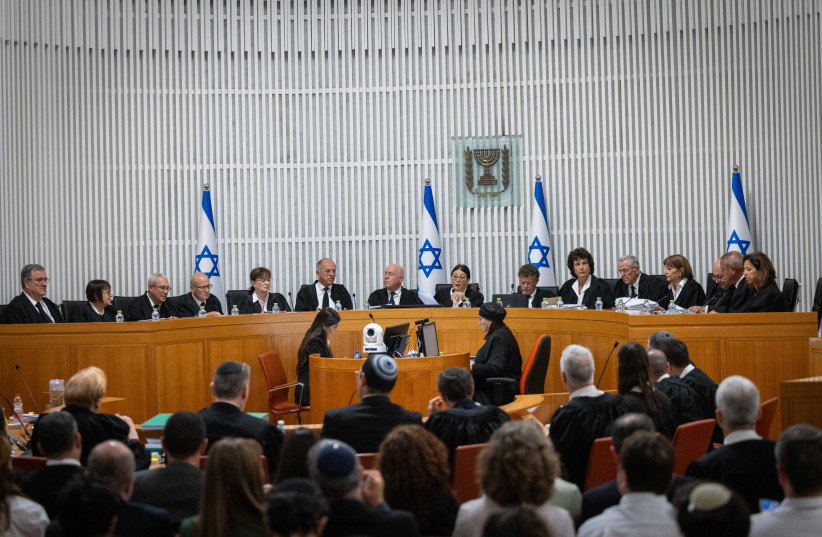Constitution, Law and Justice Committee head and Religious Zionist MK Simcha Rothman argued that every time the law interfered in the legislation and decisions of the Knesset it crossed into the auspices of governance and expanded its own power.
Speaking at the historic High Court hearing on Tuesday, Rothman argued the court was overruling the democratic will of the people to choose their elected officials. This comes though public trust in the Supreme Court has decreased over the years, but trust in the Knesset has remained.
Rothman said that if the court had respected the separation of powers and legal and academic opinions over the years, there would have been no need for this basic law amendment.
Hayut, Rothman face-to-face
Supreme Court President Esther Hayut challenged Rothman on what recourse the public would have against excessive government administrative decisions. Rothman said that the conversation should be held in the Knesset.

The petitioners are pushing the court to violate the basic democratic structure, said Rothman, and the justices shouldn't strike the law and rule the democratic system.
The justices and Rothman engaged in a harsh exchange of words, when Rothman referred to them as "privileged elites" that are concerned with preserving their own status. Hayut shot back that they were not concerned about their own status, but the interest of the public.
Rothman questioned if the court's decisions were subject to reasonableness in the same way the Knesset's were, and who would check this restriction.
The ability of the court to engage in judicial review was challenged by Rothman, who said that the Knesset had the authority to pass any basic law by merit of it being representative of the will of the people. The justices challenged Rothman's position, asking what prevented the parliament from passing undemocratic laws. Rothman said that the court would be exerting powers unheard of in other states, the ability to scrutinize the constitution itself. Justice Daphne Barak-Erez contended that many High Courts in the world had such a power.
